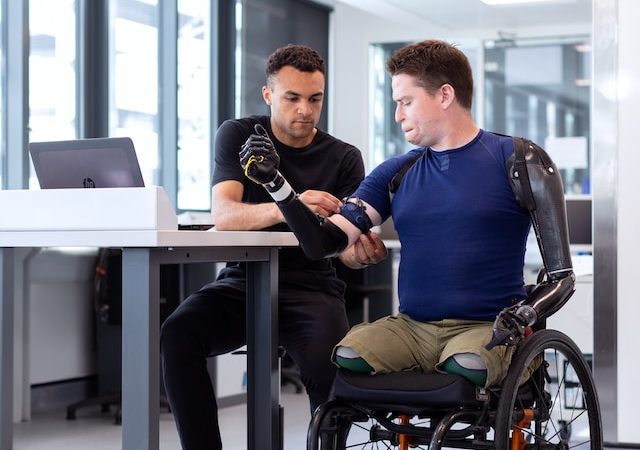Introduction: Sexual expression is a natural and important aspect of human life, including for individuals with disabilities. However, societal stigma, misconceptions, and ableism can create barriers that result in shame and limited opportunities for sexual exploration. It is essential to challenge these stigmas and create a supportive environment that embraces the sexual expression and autonomy
Introduction: Sexual expression is a natural and important aspect of human life, including for individuals with disabilities. However, societal stigma, misconceptions, and ableism can create barriers that result in shame and limited opportunities for sexual exploration. It is essential to challenge these stigmas and create a supportive environment that embraces the sexual expression and autonomy of people with disabilities. In this article, we will discuss strategies for overcoming stigma and shame and fostering a positive and inclusive approach to sexual expression.
- Education and Awareness: Promoting education and awareness is crucial in combating stigma and misconceptions surrounding disability and sexuality. Educating oneself and others about the diverse experiences of individuals with disabilities can help challenge stereotypes and promote empathy. By understanding that disability does not preclude sexual desires, attractions, or the ability to engage in intimate relationships, we can foster a more inclusive society.
- Self-Acceptance and Body Positivity: Developing self-acceptance and body positivity are powerful tools for overcoming shame. It is important for individuals with disabilities to embrace and celebrate their bodies, focusing on what they can do rather than any perceived limitations. Encouraging self-care practices, positive self-talk, and seeking support from peers and professionals can contribute to building a positive self-image and self-confidence.
- Open Communication and Supportive Relationships: Establishing open lines of communication with partners, friends, and loved ones is crucial for creating a supportive environment. Openly discussing desires, boundaries, and concerns helps build trust and fosters a sense of safety and acceptance. Surrounding oneself with supportive and understanding individuals who value sexual expression as a fundamental human right can help combat shame and promote positive experiences.
- Seeking Professional Support: Professional support from healthcare providers, therapists, or counselors who are knowledgeable about sexual health and disability can be beneficial. These professionals can provide guidance, address concerns, and help individuals navigate challenges related to sexual expression. Seeking therapy or counseling can also be helpful in processing emotions, addressing shame, and developing coping strategies.
- Peer Support and Community Engagement: Connecting with peers who have similar experiences can provide a valuable support network. Joining disability-specific support groups, online communities, or attending events and workshops centered around disability and sexuality can create opportunities for sharing experiences, exchanging advice, and finding validation. Peer support can help individuals realize they are not alone in their journey and can provide a sense of empowerment and solidarity.
- Advocacy and Challenging Ableism: Engaging in advocacy efforts is essential for combating ableism and promoting the sexual rights of individuals with disabilities. Participating in disability rights organizations, raising awareness through social media or public speaking, and challenging ableist attitudes and policies can contribute to a more inclusive society. By actively advocating for inclusive sexual education, accessibility, and the rights of people with disabilities, we can help break down barriers and reduce stigma.
- Accessible Resources and Services: Accessibility plays a significant role in promoting sexual expression for individuals with disabilities. Accessible resources, such as educational materials, websites, and workshops specifically designed for people with disabilities, can provide information, guidance, and inspiration. Accessible sexual health services, including healthcare providers trained in disability and sexual health, can ensure that individuals have access to appropriate care and support.
Conclusion: Overcoming stigma and shame is a crucial step toward embracing sexual expression as a person with disabilities. By promoting education, self-acceptance, open communication, and supportive relationships, individuals can navigate societal barriers and cultivate a positive and inclusive approach to their sexual lives. Through advocacy, peer support, and accessing accessible resources and services, we can work together to challenge ableism, empower individuals with disabilities, and promote a society that recognizes and respects the sexual autonomy and desires of all individuals.

















Leave a Comment
Your email address will not be published. Required fields are marked with *